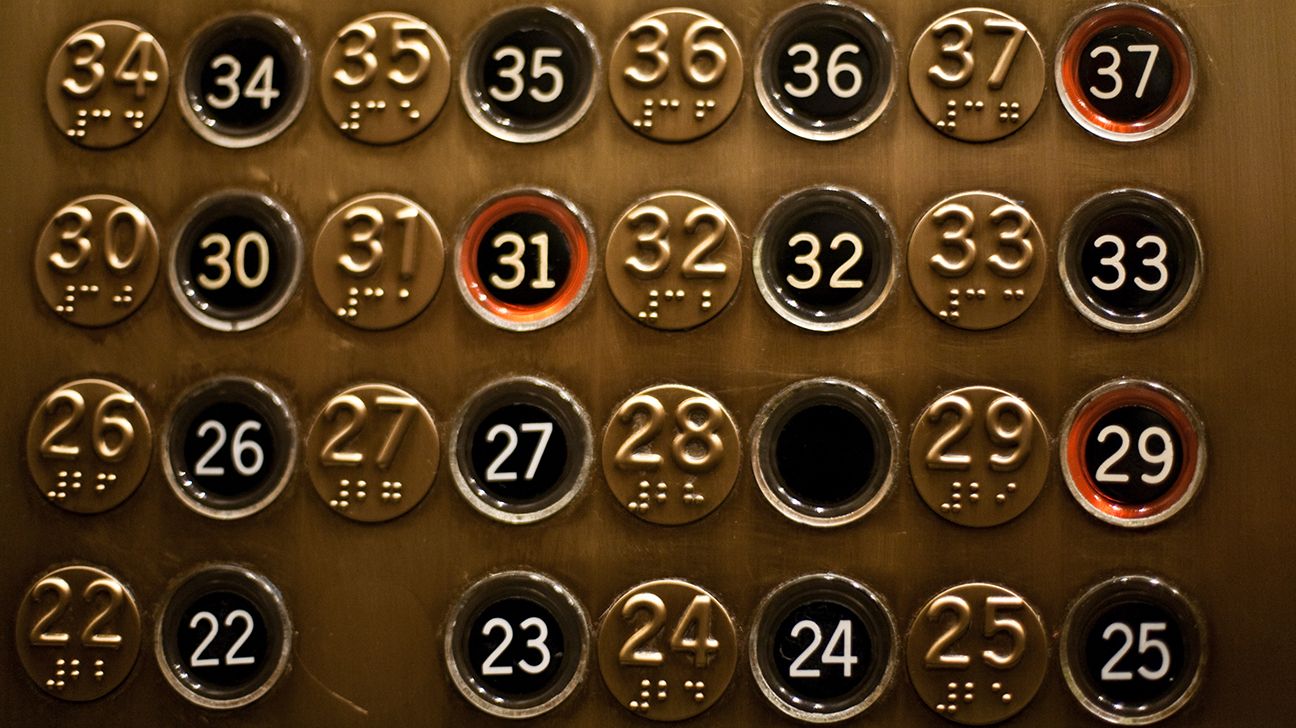Dizziness after an elevator ride can be linked to motion sickness, vertigo, anxiety, and other conditions. You can manage this sensation by trying a few different options.

There are more than a million elevators in the United States, and sometimes, it’s easier to locate an elevator than a stairwell. Some people get an uneasy feeling in elevators, but you can also become physically lightheaded or dizzy when riding in an elevator.
This article will explore why you might get dizzy after riding an elevator and what you can do about that lightheaded feeling.
Motion sickness is very common, with 1 in 3 people reporting severe symptoms. On top of that, between
Both conditions can make you
While dizziness after moving around as you do on an elevator isn’t exactly “normal,” it’s not really that uncommon, either.
Dizziness from riding in an elevator can result from motion sickness or vertigo. Both of these conditions can make you lightheaded with movement or the position of your head.
You are also more likely to experience dizziness in an elevator or anywhere else if you have problems with your inner ear. The inner ear helps your body understand your position and orientation based on the world around you.
Inflammation, infection, and other problems in the inner ear can make you feel dizzy or off-balance.
Examples of conditions that can fall into this category include:
- labyrinthitis
- Meniere’s disease
- vestibular neuritis
- inner ear infections
If you become dizzy enough, nausea can follow.
Like elevators, escalators move your body even though you are standing still. This act of moving without moving is a bit of a paradox, and how dizzy you get doing different activities can vary from person to person.
There’s a slight difference in the motion with either device, so you could be dizzy on both, or your symptoms could be limited to one.
If you routinely get dizzy with motion or on devices that move your body from one place to another, take extra care when using them.
If you get dizzy or nauseous during or after every elevator ride, you can try using remedies aimed at treating motion sickness, such as:
You should know, though, that some medications used for motion sickness can cause drowsiness.
Elevator designers also try to minimize the effects of the motion and changes in elevation with things like mirrored walls and pressurization systems inside the elevator cabin. If you know you get dizzy during an elevator ride, it can be helpful to hold on to the handle or grab bar that should be fitted inside the elevator.
If you ride an elevator frequently, you might notice feelings of dizziness decrease over time as your body adapts to the movement.
You can also take precautions with the way you position and hold your body — especially your head — as the elevator moves.
Other natural or holistic remedies that can help you manage the dizziness or nausea that comes after elevator rides from
- eating ginger candies
- smelling rose-scented items
- focusing your vision on a stationary spot
- lying down
- making fists or tensing your muscles
If inner ear problems are to blame for your post-elevator ride dizziness, treatment may be a bit more involved and can include things like:
- antibiotics
- steroids
- antihistamines
- diuretics
- physical therapy
Motion sickness and vertigo aren’t normal, but they aren’t uncommon. If you experience either of these issues, what kind of movement and how much movement triggers the sensation will be unique to you.
If you become dizzy or lightheaded after riding an elevator, motion sickness, vertigo, or even inner ear disorders could be to blame.
You may consider consulting your healthcare team if you experience dizziness to the point of passing out or losing consciousness.









